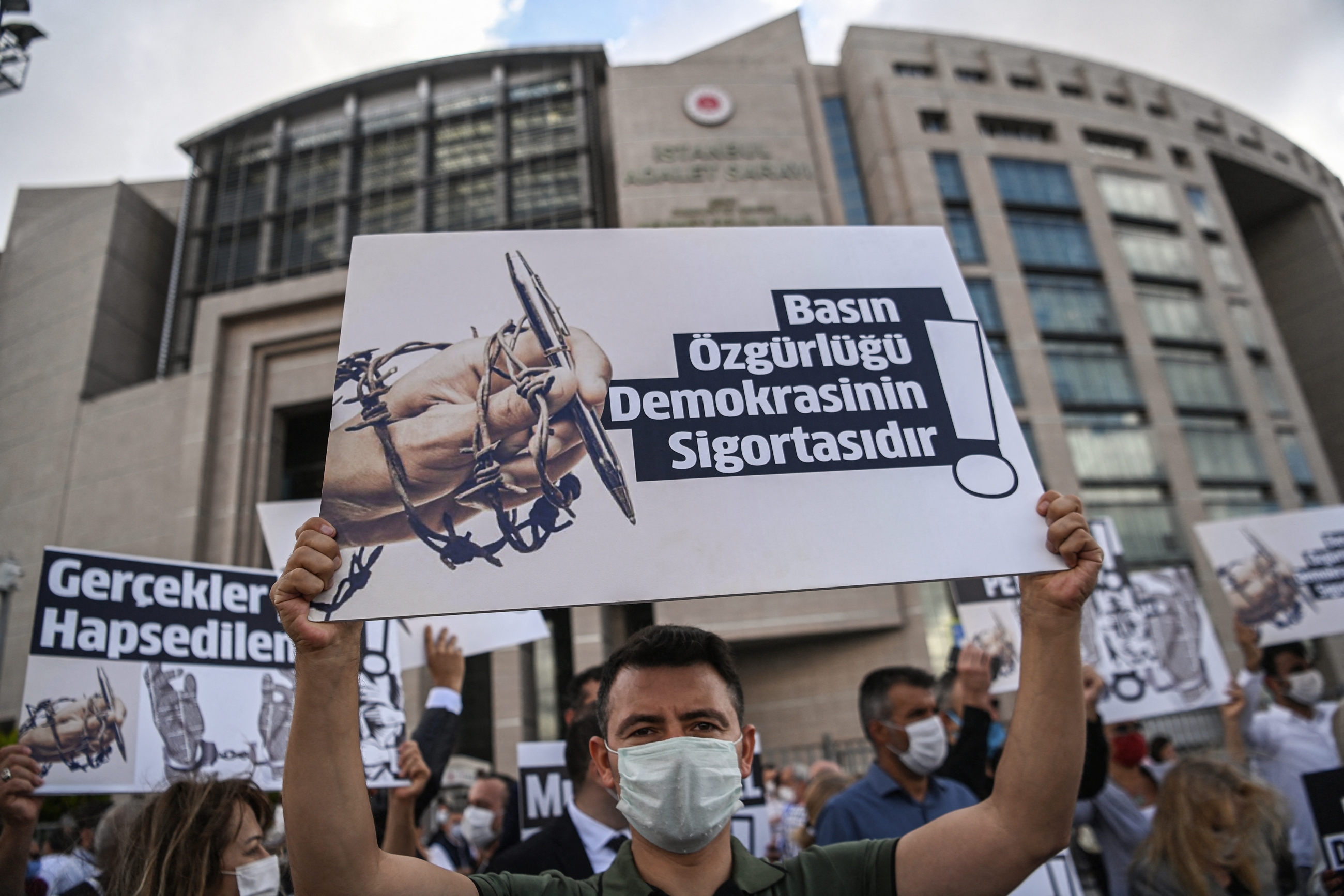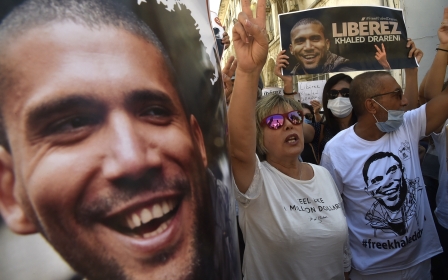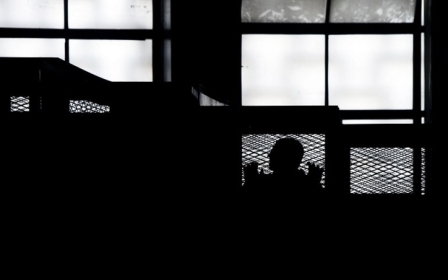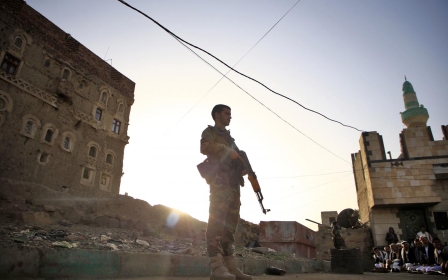Middle East countries amongst highest jailers of journalists in 2020

Turkey, Egypt and Saudi Arabia were among the countries to jail the most journalists in 2020, according to two reports released this week.
The Committee to Protect Journalists (CPJ) published its annual global survey on Tuesday, which found that at least 274 journalists had been detained this year - up from a record high of 272 in 2016.
China led the way with 47 reporters jailed, followed by Turkey (37), Egypt (27) and Saudi Arabia (24). Iran was the joint sixth highest, with 15 arrests.
On Tuesday, Reporters Without Borders (RSF) also released its 2020 round-up, which found that a total of 387 journalists had been detained between 1 January and 1 December.
This was made up of 252 professional journalists, 122 non-professional journalists and 13 media workers.
New MEE newsletter: Jerusalem Dispatch
Sign up to get the latest insights and analysis on Israel-Palestine, alongside Turkey Unpacked and other MEE newsletters
“It’s shocking and appalling that we are seeing a record number of journalists imprisoned in the midst of a global pandemic,” CPJ executive director Joel Simon said.
“This wave of repression is a form of censorship that is disrupting the flow of information and fueling the infodemic. With Covid 19 raging through the world’s prison, it’s also putting the lives of journalists at risk.”
RSF’s report noted a sizable 35 percent increase in the number of women detained, up from 31 last year to 42 in 2020.
“These figures confirm the pandemic’s impact on journalism and the unacceptable fact that some journalists are paying with their freedom for seeking the truth,” RSF secretary-general Christophe Deloire said.
“They also confirm that women journalists, of whom the proportion is increasing, are not being spared by the crackdown.”
Government critics jailed across region
Egyptian authorities arrested and detained journalists this year despite, and sometimes because of, the Covid-19 pandemic.
At least three journalists were arrested for reporting related to the pandemic, including for criticising the lack of state media coverage about health workers who contracted the virus.
In July, prominent journalist Mohamed Monir died from coronavirus just days after being released from Cairo’s Tora Prison. Monir was arrested after appearing on Al Jazeera’s news network, which Egypt labels as a mouthpiece for the outlawed Muslim Brotherhood.
Egyptian President Abdel Fatah el-Sisi’s government is accused of jailing tens of thousands of political prisoners, including journalists and bloggers, on trumped-up charges.
The CPJ noted an increase in authoritarian governments, particularly Egypt, using “false news” as a charge to detain journalists. Thirty four journalists were jailed under this charge in 2020, up from 31 last year. US President Donald Trump’s “fake news” rhetoric was thought to play a significant part in the trend.
“The record number of journalists imprisoned around the world is President Trump’s press freedom legacy,” Simon said. “The incoming Biden administration must work as part of a global coalition to bring the number down.”
In Turkey, the figure of 37 detained journalists was less than half the number in 2016, when a failed coup attempt led to a surge in arrests.
Among those arrested this year were three journalists from pro-Kurdish outlet Mezopotamya News Agency, one of whom alleged in a story that Turkish military personnel had detained and tortured two Kurdish farmers and thrown them from a helicopter.
Meanwhile in Saudi Arabia, blogger Raif Badawi, who was arrested in 2012 on charges of "insulting Islam", entered his eighth year behind bars. In that time, Badawi has gone on several hunger strikes in protest against prison conditions.
Algeria, Morocco and Iran also featured among the world’s jailers of journalists.
Algerian reporter Khaled Drerani, who played a prominent role in covering the country’s pro-democracy movement last year, was jailed in August on charges of “endangering national unity” and “inciting an unarmed gathering”. RSF ranked Algeria 146th out of 180 countries in its 2020 World Press Freedom Index.
Meanwhile in neighbouring Morocco, journalist and human rights activist Omar Radi was arrested in July on charges of espionage and sexual assault. The arrest came just days after an Amnesty International investigation found that spyware produced by Israeli firm NSO Group was used to target Radi and two other Moroccan rights activists.
In Iran, two journalists were jailed in their attempts to cover the coronavirus pandemic. Hamid Haghjoo has been detained since April for publishing a cartoon making fun of Iranian clerics who recommend traditional remedies to treat the virus.
Roghieh Nafari, a student and citizen-journalist, is also being held over tweets criticising the government’s handling of the outbreak. Iran is the worst-hit country by the pandemic in the Middle East, with over 50,000 deaths.
Tehran also jailed and subsequently executed dissident journalist and activist Ruhollah Zam. He had reportedly been running a website called Amadnews and a channel on the Telegram messaging app from Paris, before being "lured" back to Iran.
The Islamic Republic summoned the envoys of Germany and France last week over their condemnation of the execution.
Journalists held hostage in Iraq, Syria and Yemen
According to RSF’s report, 54 journalists are currently being held hostage by non-state actors. All of these are in the Middle East: 34 in Syria, 11 in Iraq and nine in Yemen.
Among them is Bilal Abdul Kareem, an independent journalist and contributor for Middle East Eye, who was arrested in August by the Hay'at Tahrir al-Sham (HTS) militant group in Syria’s opposition-held Idlib province. Kareem’s location remains unknown.
The Islamic State (IS) group is the biggest hostage-taker of journalists in 2020, with 25 victims. Other armed militant groups in Iraq and Syria, including HTS and al-Qaeda, are responsible for 13 hostages, while the Houthi rebels in Yemen are holding seven.
Four journalists were reported missing in 2020, including Tawfik al-Tamimi, the editor of the Iraqi newspaper Al-Sabah.
Tamimi was kidnapped on 9 March in Baghdad, just days after posting his concerns on Facebook about the owner of a publishing house who had been kidnapped.
RSF is due to publish its annual report on journalists killed in 2020 on 29 December.
Middle East Eye delivers independent and unrivalled coverage and analysis of the Middle East, North Africa and beyond. To learn more about republishing this content and the associated fees, please fill out this form. More about MEE can be found here.




